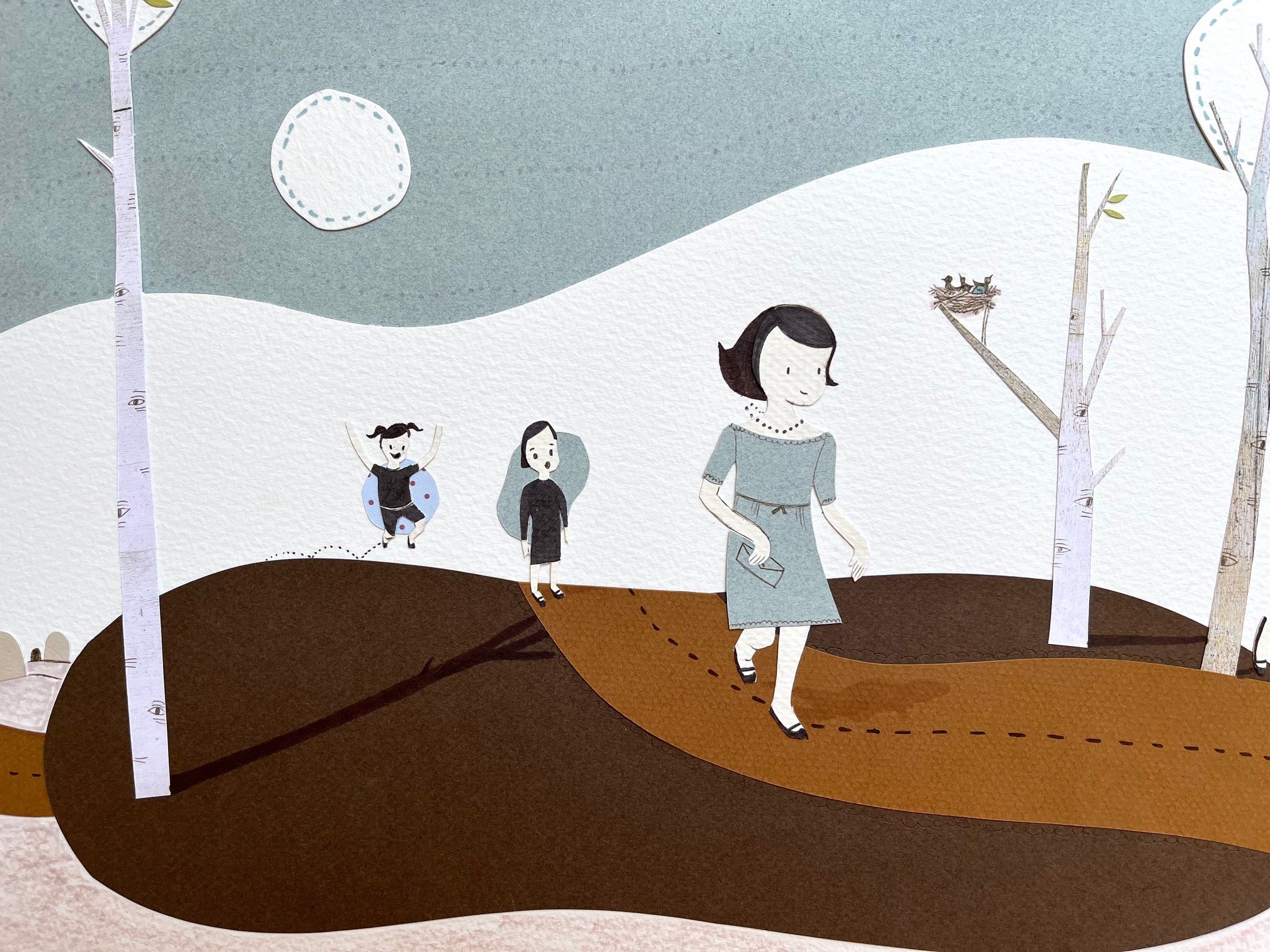The Good Fridays of our Eastertide Lives
Samantha Wedelich, “With Fear and Great Joy,” collage (2005)
"Why do I feel depressed on Easter Sunday?" That's a question that I was asked once by a friend.
It seems "wrong" or "shameful" to feel depressed on the one day that you should feel utter joy. Isn't this the day that we join all of creation in a song of praise and skip with the mountains and fields in unqualified hallelujahs?
I've been helped to make sense of this “strange,” but not uncommon, mix of feelings by a work of art that my friend Samantha Wedelich (née Holder) made years ago during my years as a pastor at Hope Chapel. A member of our congregation, she often sat in the back pews, doodling during the sermons.
In this collage, which she created for our Easter exhibit in 2005 while she was a student at the University of Texas, Samantha visually interprets the language of Matthew 28:8. The two Marys have gone to the tomb at dawn, when an angel suddenly appears and tells the women that Jesus has been raised from the dead.
His message delivered, he ends by saying: "Behold, I have told you." To my ears today, it sounds like something the Mandalorian would say: "This is the way."
The Marys leave the sepulcher, the text tells us, "with fear and great joy." Two feelings that we assume should occupy different spaces in our hearts occupy the same space in their hearts.
In her art, Samantha personifies these feelings in the form of two "heart" Marys. Four women are shown in procession: Mary Magdalene and the "other" Mary appear in the foreground, while two little "heart" Marys inhabit the background in their joint race back to Galilee.
One looks paralyzed with fear, mouth gaping, feet frozen in place, while the other is skipping and hopping without a care in the world.
In giving human form to these twin feelings, Samatha shows us an image of our own muddled-up hearts. And in giving them concrete form, she forces us to slow down and to pay careful attention to this enigmatic moment in the first Gospel.
There's a reason why stories of doubt, fear, ignorance, blindness, hesitation, pettiness, refusals to believe and hardness of heart are recorded in all four Gospel accounts of Christ's resurrection. It's because we too need to know that our Risen Lord graciously meets us in these places.
The resurrection of Jesus does not ignore, nor run roughshod over, the Good Fridays of our lives but rather saturates and sustains them in hopeful ways.
This is good news not just for the very broken among us, but also for those of us who seek to love well those who are suffering this first week of Eastertide. May we know this goodness deep in our bones, this day and forever more.


